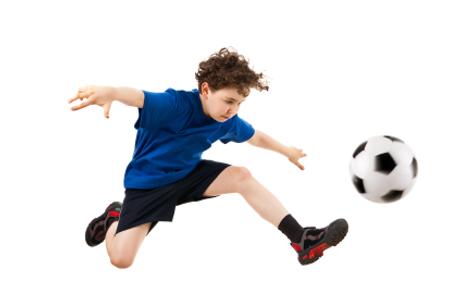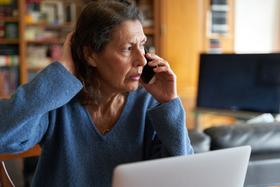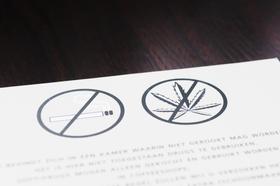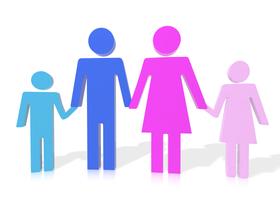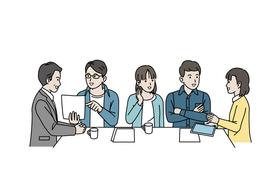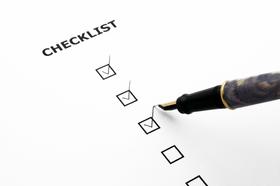The Safety Factor
As you well know, there are several reasons why you are considering private school for your child. Her safety is on your list, albeit somewhere below other considerations such as the academics, athletics, and extracurricular activities when you first start thinking about schools. Safety is not usually an issue in private schools. Indeed, school violence is not often found in private schools. In fact, the only examples of which I am aware in recent years consist of a few scattered incidents of hazing and cyber-bullying. I won't scare you with examples of school violence in public schools. You see and read about these incidents every day, both at home and abroad. Instead, let's explore some of the reasons and factors that make private schools safe places for your child. You can check that box on your list of questions about private schools.
Discipline Codes
One of the most important reasons why private schools tend to be safe places for your children is because they all have discipline codes. These discipline codes are enforceable and, indeed, are enforced simply because you and your child entered into a legal contract with the school when you agreed to send your child to the school. As a result, when a student violates the code, there will be consequences, including expulsion. In a public school, students have constitutional rights. In a public school, due process must be followed before serious disciplinary consequences occur. That due process can take weeks or even months. In a private school, the decision is made swiftly, and consequences are put in place within hours or days.
This short video explains why a school like Friends School in Detroit is a great school to attend.
Safe schools are places where learning can take place. Most of the students in a private school are there to learn. They want to know. Their parents have sent them there at great expense to learn. They are not in private school to waste time and fool around. They are not in private schools to get into trouble of any kind. They and their parents know that if they break the rules, they will face consequences without question.
Dress codes are another important part of a private school's approach to discipline. While some schools require a uniform, most have a dress code. So, the outlandish get-ups in many public schools are not tolerated. Dress codes minimize distractions from learning. They level the social playing field in many ways as well.
Respect for Others
Tied in with the discipline code is the reality that no bullying, hazing, or intimidation is tolerated. Make that error in judgment, and you will face serious consequences. Respect for others is taught both by instruction and by example. Tolerance and diversity are watchwords of a good private school education. Listen to how the Pastor-Valverde family views the education their children are receiving at Durham Academy.
It is cool to be smart in a private school. The stereotypical groupings of geeks, nerds, jocks, and so on are exposed for what they are: meaningless labels much loved by the media. But in reality, they are simply that: meaningless labels. Private school children are taught to think critically and analytically, to explore, and to be creative. They are expected to use their talents and skills to the very best of their abilities. While they are quite normal kids who use iPads, smartphones, and all the other trappings of modern youth, they have been taught how to use all these gadgets responsibly and wisely, not as weapons to destroy a classmate's self-esteem.
Structure
Academics, athletics, and extracurricular activities provide a structured balance to the daily life and routine of a private school. When each day is different and filled with enjoyable activities and pursuits, teenagers won't be as bored and tempted to get into trouble. Keeping their students busy and active is what most private schools try to do, recognizing, of course, that children do need downtime and time to just be by themselves. The structure and rhythm of each day drive the learning on so many levels. Most importantly, it teaches valuable lessons in time management as young people prepare for college and their adult lives.
Support
How can the school know what's going on? As part of their in loco parentis obligation, private schools make it a point to know what's going on all the time. Administrative and support staff, as well as teachers, have been trained to know what to look for. As a result it is difficult for a student to hide something in the small communities most private schools consist of. Contrast caring for 300-400 students with a public high school population of 1,500 students or more, and you will begin to understand that supervision is infinitely easier in private schools. In addition, private schools bring in consultants to conduct workshops about bullying and many other issues children need to know about. As Sir Francis Bacon wrote, "Knowledge is power." Private schools teach academics but they also teach lessons for life. This enhances the creation and maintenance of a safe school community.
In this short video, a Salisbury School teacher discusses the importance of finding one's inner self.
Teachers and staff are trained to be there for their students. To listen and offer advice, counsel, and encouragement. The history of school violence reveals a sad tale of children who felt misunderstood or abused, ostracized by their peers, and rejected by society. Violence was their ultimate solution, their tragic painkiller. In a large school setting with various groups competing to be the cool set on campus, the students who feel left out drift off into the shadows.
What private school staff try to do is to create a warm, family-like atmosphere that allows children to express themselves. Children who can express themselves and articulate their feelings and opinions without fear of being mocked learn confidence as well as compromise. They learn to appreciate others and to respect diversity.
Parental Involvement
When parents drop their children off at school every day and never take time to volunteer or get involved with the school, they cannot know what is going on at school. Private day schools, on the other hand, insist that parents get involved and volunteer. Whether taking food to a food bank or helping to chaperone a class trip, the parents in a private day school play vital support roles. They are an essential part of the smooth daily functioning of the school. That involvement is another critical factor that creates a safe school.
Conclusion
To summarize, be aware that discipline codes, supervision, and parental involvement are essential to running a safe school environment for your child. In addition, how a private school manages the whole child, not just her education, is the key to preventing violence in schools. It is a critical reason private schools are safe places for children. Safety doesn't just happen. It is planned carefully and in great detail. Safety is paramount for every member of the school community all the time. That is how you operate. That is how a private school operates. This is why most private schools are safe places for your children.
Questions? Contact us on Twitter. @privateschoolreview
#PrivateSchoolSafety #DisciplineCodes #RespectInSchools #SchoolStructure #ParentalInvolvement

